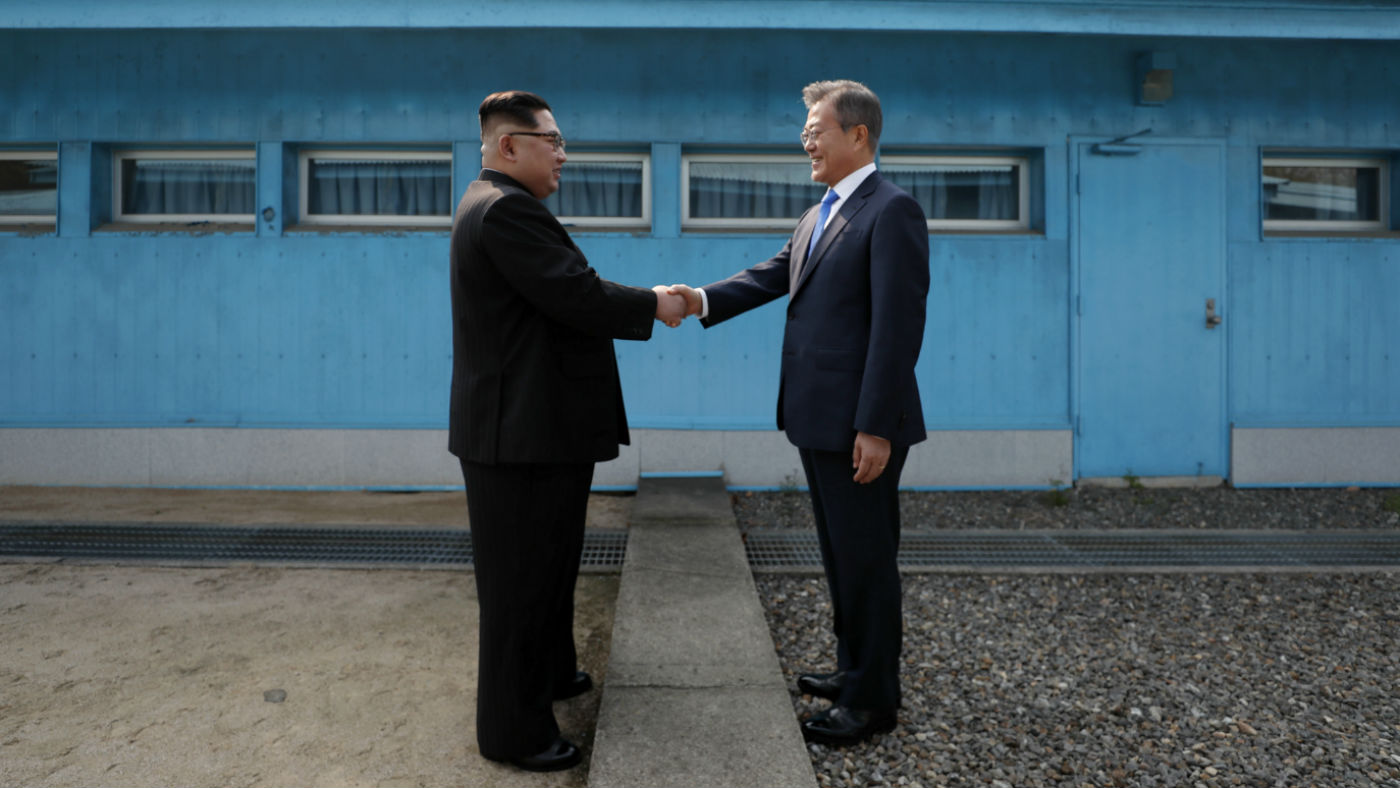Are we heading for clashes between North and South Korea?
Kim Jong Un’s regime blows up liaison office on border between the two countries

A free daily email with the biggest news stories of the day – and the best features from TheWeek.com
You are now subscribed
Your newsletter sign-up was successful
The uneasy truce that has existed between North and South Korea for almost 70 years is under threat once again following a fresh outbreak in hostilities.
The two neighbouring nations failed to reach a peace agreement at the end of the Korean War in 1953, instead signing an armistice deal that included a “suspension of open hostilities” and a 2.4-mile demilitarised zone (DMZ) along their border.
But North Korea is now threatening to enter this zone and take “action” against the South, sparking fears of another all-out conflict on the peninsula.
The Week
Escape your echo chamber. Get the facts behind the news, plus analysis from multiple perspectives.

Sign up for The Week's Free Newsletters
From our morning news briefing to a weekly Good News Newsletter, get the best of The Week delivered directly to your inbox.
From our morning news briefing to a weekly Good News Newsletter, get the best of The Week delivered directly to your inbox.
What has happened so far?
North Korea warned over the weekend that its army was prepared to enter the demilitarised zone in response to defector groups in the South sending propaganda material across the border, reports the BBC.
Large helium-filled balloons are often used to carry leaflets into the North along with other items, including food, $1 bills, radios and USB sticks loaded with South Korean dramas and news.
Despite the South Korean government warning its citizens to stop the practice, the authorities in Pyongyang say that the continuing onslaught demands retaliatory military action.
A free daily email with the biggest news stories of the day – and the best features from TheWeek.com
Kim Yo Jong, the sister of North Korean leader Kim Jong Un, announced on Saturday that she had ordered her country’s army to prepare to strike back, adding: “I feel it is high time to surely break with the South Korean authorities.”
“Rubbish must be thrown into the dustbin,” added Yo Jong, who has risen rapidly through the ranks of the ruling Communist Party to become the most important figure in the regime after her brother.
Tensions had been soaring since the North Korean military announced early last week that its leader were “studying an action plan” to move “into the zones that had been demilitarised”.
Pyongyang then cut all communications with the South, including a hotline between the two nation’s leaders.
Yesterday, North Korea turned the threats into action, blowing up a liaison office that had been set up in the northern border town of Kaesong in order to improve communications with the South.
Kim Yo Jong had warned on Saturday that Seoul would soon witness “a tragic scene of the useless North-South liaison office being completely collapsed”.
No one is believed to have been in the office when it was blown up, at around 3pm local time (5:49am GMT) on Monday. Al Jazeera reports that the four-storey base had been temporarily closed since January owing to the coronavirus pandemic.
Pyongyang’s official Korean Central News Agency subsequently said the North had destroyed the office to “force human scum and those who have sheltered the scum to pay dearly for their crimes”.
–––––––––––––––––––––––––––––––For a round-up of the most important stories from around the world - and a concise, refreshing and balanced take on the week’s news agenda - try The Week magazine. Start your trial subscription today –––––––––––––––––––––––––––––––
What next?
The possibility of North Korea’s military entering the DMZ remains a real possibility.
Following Kim Yo Jong’s announcement at the weekend, the North Korean military said it was ready to “turn the front line into a fortress and heighten military vigilance”, in a statement released through state news agency KCNA.
The army is on “high alert” and ready to “rapidly and thoroughly” carry out any orders from the government, the statement added.
North Korea has also threatened to start is own propaganda campaign as part of a “large-scale leaflet-scattering struggle against the enemy”, reports The Guardian.
In a bid to defuse to growing tensions, the South’s President Moon Jae-in is calling for a continuation of peaceful communications between the two countries’ governments.
“I regret that North Korea-US and inter-Korean relations have not made progress as expected,” he said in a message to mark the 20th anniversary of the first inter-Korean summit. “But what’s most important is trust, which the South and North should build through constant dialogue.”
The South may also step up action against the defector groups sending propaganda to the North, after warning that the lives of people living on the border were being endangered. Seoul has already filed a police complaint against two such groups, saying their activities were not helping “efforts to achieve peace and prosperity of the Korean Peninsula”.
However, Human Rights Watch has called the defectors’ leaflets a “relatively harmless expressive act” that should not be banned, reports The Independent.
“It is shameful how President Moon and his government are totally unwilling to stand up for the rights of North Koreans,” the international rights group’s deputy Asia director, Phil Robertson, said in a statement.
“Instead of proposing a blanket ban on sending balloons with messages and materials to the North, President Moon should publicly demand that North Korea respect freedom of expression and stop censoring what North Koreans can see.”
As the world watches the unfolding crisis, defector groups say they are planning to send further leaflets across the DMZ and into the north later this week.